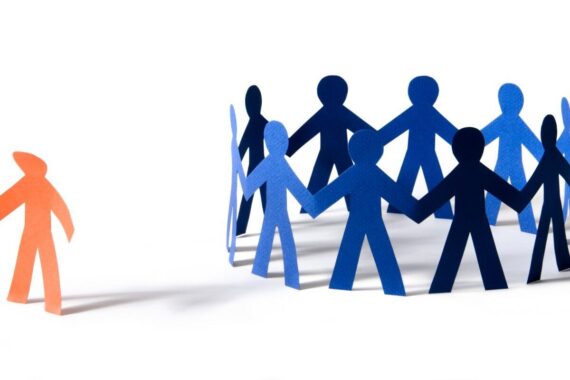Half of LGBTQ+ doctors uncomfortable coming out to colleagues, BMA warns

Fewer than half of LGBTQ+ doctors and medical students feel comfortable enough to come out to their colleagues, a survey has revealed.
The joint survey by the BMA and Association of LGBTQ+ Doctors and Dentists (GLADD) found that only 46% lesbian, gay, bisexual, and queer doctors and medical students feel comfortable talking about their sexual orientation in their workplace.
The survey of nearly 2,500 respondents also found just 34% of LGBTQ+ doctors and medical students felt able to be open about their gender identity.
Almost all (94%) of LGBQ+ respondents and 81% of trans respondents had experienced ‘low-level’ microaggresions, which include homophobic, transphobic, or biphobic ‘jokes’ or banter.
Most of these incidents go unreported, with over 70% of survey respondents saying they did not inform their managers. However, one in eight lesbian, gay, bisexual, or queer respondents, and one in three trans respondents, said they have either thought about quitting their job or have actually quit in response to such incidents.
The report also revealed the ‘notable differences in views’ on the extent to which discrimination on the basis of sexual orientation exists. The survey found that 71% of LGBQ+ respondents think that homophobia and biphobia are an issue in the wider profession, compared with just over a quarter (26%) of heterosexual respondents.
Meanwhile, 84% of trans respondents think transphobia is an issue in the wider medical profession, compared with just half (49%) of cisgender respondents.
The work had aimed to ‘understand and improve the experiences of LGBTQ+ medics in education, training, and the workplace’, with BMA council deputy chair Dr Emma Runswick commenting that the report ‘gives our profession a useful and timely reminder of what prejudice and discrimination look like for LGBTQ+ doctors and medical students in the UK’.
‘It is not always safe to be out publicly, especially in professional circles. I have personally experienced incidents of homophobia and biphobia, and have witnessed transphobia, both at work and within the BMA, that resonate with the findings of this report,’ she added.
Dr Runswick said that even though there has been progress for LGBTQ+ people in medical institutions over the past decade, ‘attitudes and workplace cultures have often lagged’.
The BMA’s suggestions for improving experiences for LGBTQ+ medics included improving training, increased visibility of LGBTQ+ role models, reflective learning spaces and improved data collection of LGBTQ+ staff experiences.
‘We hope that all colleagues will join us in the struggle for LGBTQ+ rights, against homophobia, biphobia, and transphobia,’ Dr Runswick saod.
A Pulse investigation this year showed there were also still major issues around homophobia, sexism, and racism within the BMA itself.
Pulse July survey
Take our July 2025 survey to potentially win £1.000 worth of tokens

Related Articles
READERS' COMMENTS [1]
Please note, only GPs are permitted to add comments to articles











And?…for decades, the whole unit and profession were silenced with even being a human being with feelings – and even now – whistle-blow training: aka don’t you dare training – the profession can’t even come out that they are treated like professional slaves – made to hate their job after dedication and servitude and sacrifice and risk, don’t trust the hierarchy and corrupt institutes, made to covering up for system failures and regulators who power-trip their way through life and their healthy salaries – and blagging it in a pass the buck system whilst ultimately not caring – yes read that again – some just don’t care anymore – and that was their mastermind plan, which now is backfiring big time – as now the numbers and new generation couldn’t really give half a (m)oss with their eyes set on a better future, not linked to a blue and white sign and three letters.